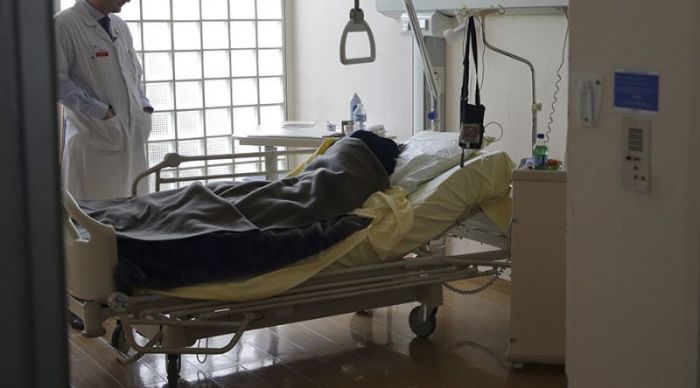Vermont's new assisted suicide law eliminates in-person doctor consultation requirement

Vermont will now enable patients to remotely request medication to hasten their death by amending its assisted suicide statute to include telemedicine and expand access to life-ending drugs.
Gov. Phil Scott signed S.74 into law last week, allowing patients who meet specific criteria to request a prescription to aid in dying without an in-person doctor visit.
The original 2013 S.77 bill required patients with a terminal illness and a six-month prognosis to make two in-person visit requests to a prescribing physician, at least 15 days apart. Patients also had to visit another consulting physician to make a written request and wait 48 hours after receiving the prescription to use it.
The new law eliminates the requirement that the prescribing physician performs a physical examination to determine if the patient suffers from a terminal condition. Patients must still make two requests for life-ending medication, at least 15 days apart, but physicians can now remotely determine a patient's eligibility. It also removes the 48-hour waiting period between when the physician writes the prescription and the patient uses it.
Under S.74, healthcare providers and pharmacists aiding patients in suicide will have legal immunity.
Wesley J. Smith, chair and senior fellow at the conservative think tank Discovery Institute's Center on Human Exceptionalism, told The Christian Post that the recent bill is "appalling, but not surprising."
"Once the principle is established that suicide is an acceptable answer to human suffering and that the state will facilitate that effort, then the supposed guidelines that are promised to protect against abuse soon come to be seen as obstacles," Smith said.
"What Vermont is doing is making it so that it's easier to receive assisted suicide, and that process will continue in any jurisdiction that legalizes it. Sometimes faster, sometimes slower. But it continues and moves forward."
According to a January Vermont Department of Health report, from May 31, 2013, to June 30, 2021, 116 state residents used the law to end their lives.
Act 27, passed by the General Assembly in 2015, requires the state's Department of Health to facilitate information regarding compliance and make the statistical report available to the public.
Some proponents of assisted suicide argue that patients should have the right to determine when they die, saying that it constitutes compassionate medical care by alleviating an individual's suffering. Proponents also claim that giving patients the right to die relieves their families of the financial burden of paying for their healthcare costs.
Smith, however, contends that legalizing assisted suicide creates a "two-tiered system of the value of human life."
"You're basically saying that a certain category of people should not have the same suicide prevention as other people," Smith said. "And you're validating their worst fears that they're a burden, that they do not have lives worth living."
The Discovery Institute senior fellow also asserts that few people undergo assisted suicide to alleviate the pain of a physical illness. He believes many seek help with ending their lives for "existential reasons."
According to a 2008 study published in the weekly peer-reviewed journal BMJ, depression and mental illness could also be a factor causing some people to opt for assisted suicide. The study, led by Dr. Linda Ganzini of the Oregon Health & Science University, analyzed 200 terminally ill cancer patients in Oregon. The study found that the prevalence of depressive symptoms among patients expressing a desire to end their lives was 59% but only 8% among patients without the desire to die.
In addition, the study suggested that treatment of depression usually reduces suicidal ideation among patients.
The study's authors concluded that patients requesting suicide should undergo a psychiatric evaluation to determine if they are severely depressed or suffering from other mental health conditions.
Smith believes that patients looking to end their lives due to a physical or mental ailment should receive the same interventions to support their continued living as any other suicidal person.
"A suicide is a suicide, and they can pretend that aid in dying isn't suicide, but that's exactly what it is," Smith said. "Anyone who is suicidal, and none of us knows what might stimulate us to fall into that darkness, should be given the same life-affirming care that says, 'We need you, we want you here. Let us do what it takes to help you maintain your life."





























